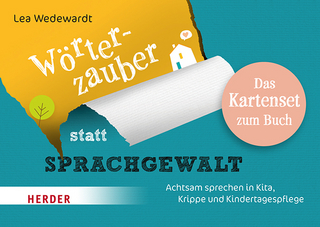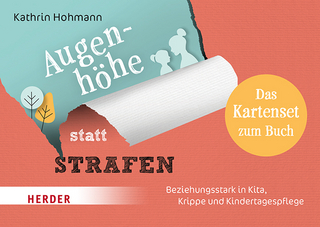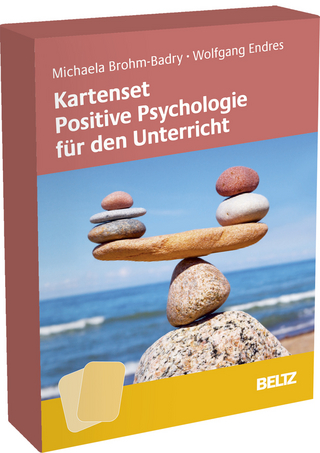
Self-Regulation Test for Children
Computer-Assisted Test of Resistance to Distraction and Temptation
Seiten
2001
Hogrefe Publishing
978-0-88937-125-5 (ISBN)
Hogrefe Publishing
978-0-88937-125-5 (ISBN)
- Titel wird leider nicht erscheinen
- Artikel merken
This computer-aided and process-oriented diagnostic instrument assesses the resistance of children - aged 5-11 - to distraction and temptation. Norms are provided for ages 6-10; results are illustrated in graphs and tables; and data can be exported for scientific studies.
The SRTC is a computer-aided and process-oriented diagnostic instrument which assesses children's resistance to distraction and temptation. The test is suitable for use with children aged 5-11 years and takes about 30 minutes to run. Norms are provided for ages 6-10; results are illustrated in graphs and tables; and data can be exported for scientific studies. The test is based on the theory of "action control" and on concepts concerning the development of self-regulation, ie, the ability to maintain and carry out intentions even when faced with competing motivational distractions. Self-regulatory abilities are inferred from the children's responses to an induced conflict between cognitive and emotional preferences. Children are encouraged to collect "pennies" for each correct response, while an interesting but distracting event appears on the screen during specific periods. The SRTC not only allows a global assessment of the effectiveness of the child's self-regulation, but also decomposes various aspects of self-regulation (such as atttention versus impulse control, initiative and overcontrol).
A detailed assessment of the volitional functions that are impaired provides the diagnostic basis for a more specific intervention that can focus on each child's particular deficits, if any. The SRTC is neither a pure state nor a pure trait instrument: the stability and globality of the results can be obtained empirically for each subject by repeated administration of the instrument. The evidence for the test's validity is based upon teacher ratings, and on measures of the child's knowledge of self-regulatory strategy.
The SRTC is a computer-aided and process-oriented diagnostic instrument which assesses children's resistance to distraction and temptation. The test is suitable for use with children aged 5-11 years and takes about 30 minutes to run. Norms are provided for ages 6-10; results are illustrated in graphs and tables; and data can be exported for scientific studies. The test is based on the theory of "action control" and on concepts concerning the development of self-regulation, ie, the ability to maintain and carry out intentions even when faced with competing motivational distractions. Self-regulatory abilities are inferred from the children's responses to an induced conflict between cognitive and emotional preferences. Children are encouraged to collect "pennies" for each correct response, while an interesting but distracting event appears on the screen during specific periods. The SRTC not only allows a global assessment of the effectiveness of the child's self-regulation, but also decomposes various aspects of self-regulation (such as atttention versus impulse control, initiative and overcontrol).
A detailed assessment of the volitional functions that are impaired provides the diagnostic basis for a more specific intervention that can focus on each child's particular deficits, if any. The SRTC is neither a pure state nor a pure trait instrument: the stability and globality of the results can be obtained empirically for each subject by repeated administration of the instrument. The evidence for the test's validity is based upon teacher ratings, and on measures of the child's knowledge of self-regulatory strategy.
| Zusatzinfo | graphs, tables |
|---|---|
| Verlagsort | Toronto |
| Sprache | englisch |
| Themenwelt | Geisteswissenschaften ► Psychologie ► Entwicklungspsychologie |
| Geisteswissenschaften ► Psychologie ► Test in der Psychologie | |
| ISBN-10 | 0-88937-125-3 / 0889371253 |
| ISBN-13 | 978-0-88937-125-5 / 9780889371255 |
| Zustand | Neuware |
| Haben Sie eine Frage zum Produkt? |
Mehr entdecken
aus dem Bereich
aus dem Bereich
Lehr- oder Lernkarte (2024)
Verlag Herder
20,00 €


